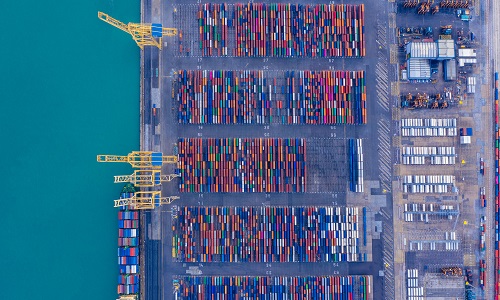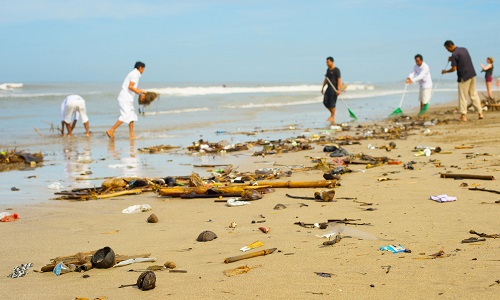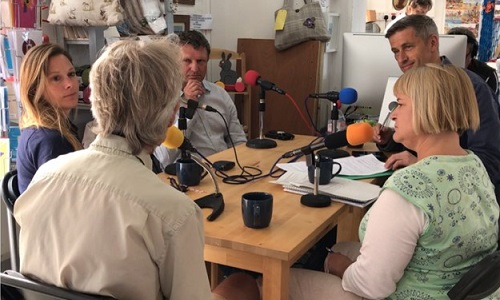Research in Geography & Environmental Studies
Research in the Department of Geography & Environmental Studies is conducted through the OpenSpace Research Centre. With a strong reputation for critical and theoretically informed research, members of the group work on a variety of geographical and environmental concerns. As well as aiming to be conceptually and empirically innovative, our research is also designed to engage with diverse publics, drawing on research expertise both within and beyond The Open University and academia. Through a regular series of events the Centre is the basis for intellectual exchange as well as supporting the research of its members.
More specifically, OpenSpace’s research aims are:
- to set new directions within geography and related fields with our research projects
- to take a co-productive approach through meaningful engagement with a wide range of external partnerships
- to make a wider contribution to public and intellectual life by utilising our strengths in broadcast and digital media
- to support postgraduate research
Our areas of research
Our research is driven by a fundamental belief that ‘Geography Matters!’. To explore the ways in which geographical analysis can explain and illuminate some of the most urgent and pressing issues of the present day, our research is organised into three thematic clusters which provide the focal points for research within OpenSpace:

Space and Power: Driven by efforts to advance some of the core concepts that underpin the discipline, this group has a history of working to critically explore the politics of place, space, scale and territory. Investigating some of the most compelling and important issues of the present day — such as biosecurity, migration, finance, health, and education — members of this cluster draw upon spatial registers of power that unsettle more conventional understandings of scale and territory.

Culture and Practice: Built upon efforts to understand the changing spatialities and complexities of social life and cultural practices, this cluster works to rethink the ways in which relations between and among humans, materials, and technologies come together to make and remake places and societies. In critically examining everyday cultures and practices, members of this cluster conduct research on a wide range of topics such as smart cities, disabled communities, spirituality, arts-based methods, and communicative practices.

Environment and Politics: Focusing on some of the most pressing contemporary challenges — including climate change, ecological resilience, resource politics, environmental justice, and sustainable consumption — research in this cluster focuses on the ways in which institutions, practices, and materials shape an environmental politics which addresses these challenges. Recognising the complex entanglements that shape the environmental issues of the Anthropocene, this cluster works to inform geographical thinking that has the politics of environmental justice and sustainability at its heart.
How we work with others
Collaboration and impact are central to the way in which we approach, develop, and conduct our research. We are driven by efforts to:

- Foster meaningful long-term relationships with a diverse range of project partners
- Create genuinely co-produced knowledge by working with project partners to agree upon mutual impact objectives at the design stage
- Develop media and communications strategies that extend the reach of our impact-related activities
We work with a range of partners, including:
NHS England and Greater Manchester Combined Authority
International Union of Forest Research Organisations
NASSCOM — National Association of Software and Service Companies
National Trust
Parliamentary Select Committee on Coastal Flooding
UNHCR
BBC
Our publications
We have several widely respected publications that unpack cutting-edge issues and help advance geographical and environmental debates. You can see selected publications below and see further publications listed by author via The Open University’s Open Research Online collection.
Benjamin Newman (2019) Authorising geographical knowledge: the development of peer review in The Journal of the Royal Geographical Society, 1830–c.1880, Journal of Historical Geography, 64 (pp. 85-97)
Charuta Kulkarni, Walter Finsinger; Pallavi Anand, Sandra Nogué, and Shonil Bhagwat (2021) Synergistic impacts of anthropogenic fires and aridity on plant diversity in the Western Ghats: Implications for management of ancient social-ecological systems, Journal of Environmental Management, 283, Article 111957
Colin Lorne (2020) The limits to openness: Co-working, design and social innovation in the neoliberal city, Environment and Planning A: Economy and Space, 52(4) (pp. 747-765)
George Revill (2021) Voicing the environment: Latour, Peirce and an expanded politics, Environment and Planning D: Society and Space ((Early access))
Georgina H. Endfield and Carry Van Lieshout (2020) Water and vertical territory: the volatile and hidden historical geographies of Derbyshire’s lead mining soughs, 1650s–1830s, Geopolitics, 25(1) (pp. 65-87)
Kim Kullman (2019) Politics of dissensus in geographies of architecture: Testing equality at Ed Roberts Campus, Berkeley, Transactions of the Institute of British Geographers, 44(2) (pp. 284-298)
Parvati Raghuram (2019) Race and feminist care ethics: intersectionality as method, Gender, Place and Culture: A Journal of Feminist Geography, 26(5) (pp. 613-637)
Steve Pile, Nadia Bartolini, and Sara MacKian (2018) Talking with the dead: spirit mediumship, affect and embodiment in Stoke-on-Trent, Transactions of the Institute of British Geographers, 43(2) (pp. 170-183)
Geography academics are editors or on the editorial boards of several peer reviewed journals some of which are listed below:
Forest Policy and Economics
Humanities & Social Sciences Communications
Mobility and Politics
Social and Cultural Geography
South Asian Diaspora
The Geographical Journal
Recent BBC collaborations
Drawing on our research expertise in geography and environmental issues, members of OpenSpace also act as academic consultants on high-profile BBC television and radio programmes, some of which are listed below:
Autumnwatch and Springwatch (Dr Andy Morris)
Green Pioneers (Prof. George Revill)
Hugh's Wild West (Dr Andy Morris)
The Fifteen Billion Pound Railway (Dr Nick Bingham and Prof. George Revill)
The Five Billion Pound Super Sewer (Dr Nick Bingham and Prof. George Revill)
This Fishing Life (Prof. Shonil Bagwhat, Prof. David Humphries, and Dr Vicky Johnson)
Our Coast (Dr Vicky Johnson)
Selected current projects
Sounding Coastal Change

Sounding Coastal Change is a research project in partnership with the National Trust that focuses on social and environmental change in North Norfolk. Using sound, music, and different kinds of listening, the project explores the ways in which the coast is changing and how people's lives are changing with it. The project draws together a number of diverse groups including residents, school children and young people, local interest and community groups, institutional stakeholders and their representatives, as well as visitors to the area. The project explores the ways in which the coast is changing and how this change is perceived and enacted by humans. You can find out more information about the project as well as listening to the sounds created in collaboration with the project’s partners here.
Gender, Skilled Migration and IT industry: a comparative study of India and the UK

In the UK there are low numbers of women in and entering the Information Technology (IT) sector. In partnership with NASSCOM — the National Association of Software and Service Companies — this project has worked to address the UK’s low numbers by examining how India attracts and maintains a high representation of women in its IT sector. Identifying the gendered specificities of each labour market, this project has worked to shape professional practice in India, attempted to understand barriers to participation in the UK context, and in doing so influenced national and international policy.
Decolonising Peace Education in Africa (DEPA)
.png)
Peace education can play a critical role in engendering the knowledge, values, skills and attitudes required to prevent and reduce conflicts such as those that have occurred in several African countries. So far, however, this has had limited effects. Part of the problem lies in the fact that pedagogies and curricula which underpin peace education are grounded in Eurocentric and liberal values, principles, and methods. By bringing together academics, NGOs, and disadvantaged communities, this AHRC-funded project works to understand and embed local community’s knowledges and values (including those central to peace) in teaching materials that support those most affected by conflict. Starting with work in Nigeria, South Africa, Uganda, and Zimbabwe, you can follow the latest from the project here.
Find out more
You can find out more about what is going on in Geography by following us on Twitter, Facebook and by reading our news. Discover our individual researchers and team of academics.
Request your prospectus
![]()
Explore our qualifications and courses by requesting one of our prospectuses today.
